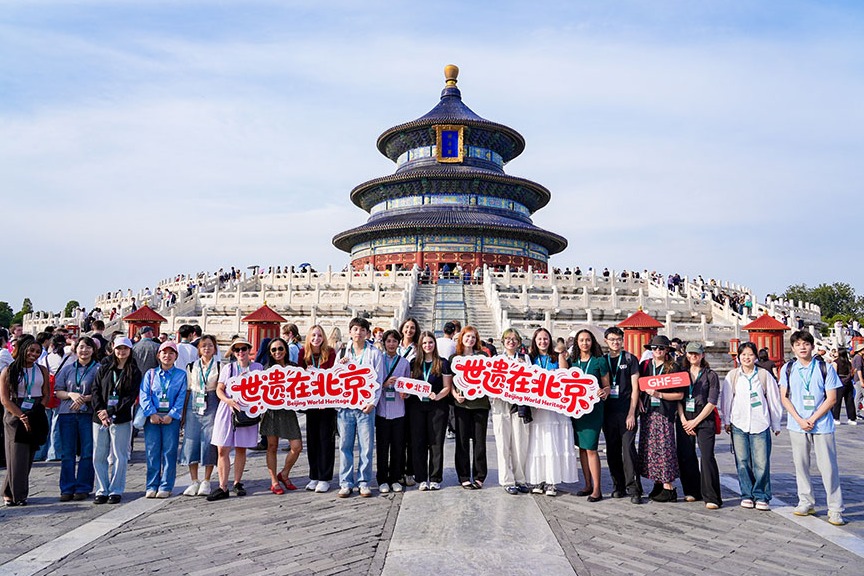Wuzhong brews up local morning tea culture

For over 300 days a year, 65-year-old Ma Jun starts his day at a restaurant serving morning tea, a local tradition similar to Cantonese dim sum or Western brunch.
"I chat with friends and eat through the whole morning," said Ma Jun.
Morning tea is a ritual for many locals in Wuzhong, a city situated in the middle part of northwest China's Ningxia Hui Autonomous Region.
Wuzhong had been a bustling trade city on the ancient Silk Road, with the majority of its population engaging in trade or related businesses. Today it is an important node city of the new Silk Road Economic Belt,
Ningxia people have their own way of drinking tea, a beverage favored in China since ancient times. Unlike most regions that brew tea leaves in a teapot, residents in Ningxia serve it in a covered tea bowl, something like a tureen. The tea is a mixture of eight ingredients and is called babao cha, or "eight treasures tea."
"Local ethnic minorities have been boiling tea leaves with red dates, wolfberries and dried fruit since the Tang Dynasty (618-907)," said Jing Hongjun, secretary-general of the Wuzhong restaurant association. "A gulp of babao tea was refreshing for merchants traveling on the Silk Road."
But the modern practice of morning tea in Wuzhong only emerged after hand-pulled noodles, a popular street food in Lanzhou, capital of the neighboring Gansu Province, conquered the hearts and stomachs of foodies in Ningxia in the 1980s.
Yang Defu was among the first to open a hand-pulled noodle restaurant in Wuzhong.
"The restaurant was just a stand in the beginning but it soon expanded into an eatery of 20 plus square meters. But still, it was flooded by customers every day," said Shan Xiaodong, Yang's son-in-law.
The noodle restaurants later began providing babao cha, side dishes and popular snacks such as potstickers and steamed stuffed buns for customers, facilitating the rise of Wuzhong's morning tea culture.
Now, as a way to kill time or as an easy-going approach to business meetings, babao cha, hand-pulled noodles, several kinds of pastries and a few side dishes have become the go-to choice and an integral part of daily life for many locals.
There are over 500 morning tea restaurants across Wuzhong, generating a combined annual revenue of 1 billion yuan (about 155.3 million U.S. dollars) last year and accounting for one-fifth of the total revenue in the catering sector, according to Ding Xuebao with the city's business and investment promotion bureau. The morning tea industry has also created over 10,000 jobs.
Ma Baojun, the owner of a time-honored morning tea brand, said that their main customers on weekdays are retired individuals and businesspeople, while on weekends, seats are usually unavailable without a reservation. "Morning tea is not only a part of catering culture, it has also become a popular social practice among the younger generations," said Ma Baojun.
Even tourists from thousands of miles away are drawn to Wuzhong for morning tea. Official data shows that over 500,000 customers sampled morning tea in Wuzhong during this year's five-day May Day holiday.
"The mutton, beef and noodles served during morning tea have significantly spurred the development of local agriculture and husbandry industries. And babao cha has also become a star product in Wuzhong," said Jing. "We're drafting morning tea criteria and training more practitioners to make it Wuzhong's signature product."
Earlier this year, Shan went to Guangdong to visit some dim sum restaurants. "We plan to infuse elements from other cuisines into the traditional morning tea to attract more young customers," he said.

































